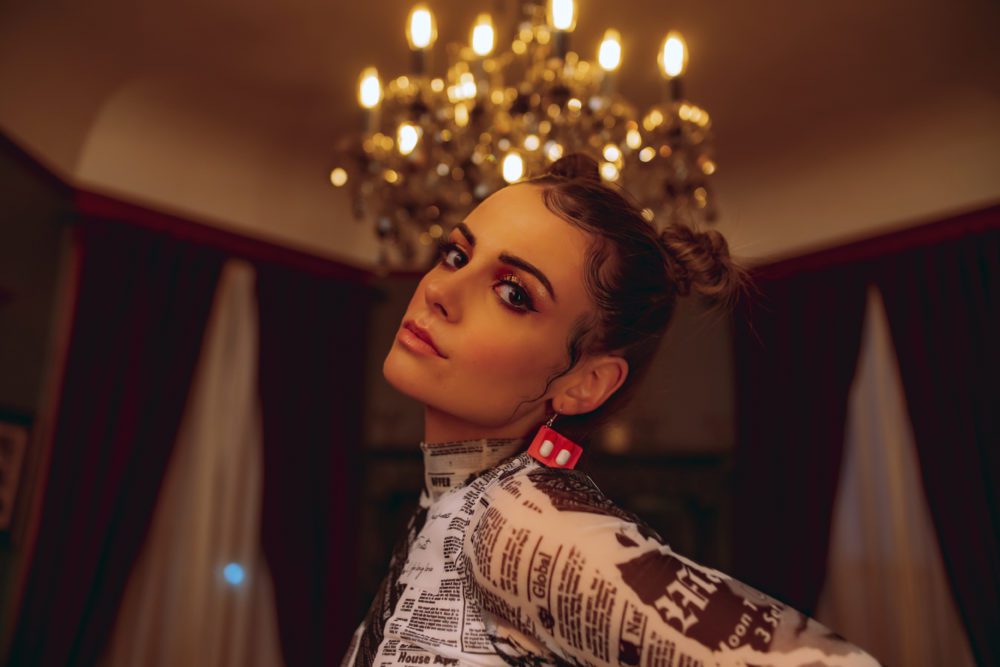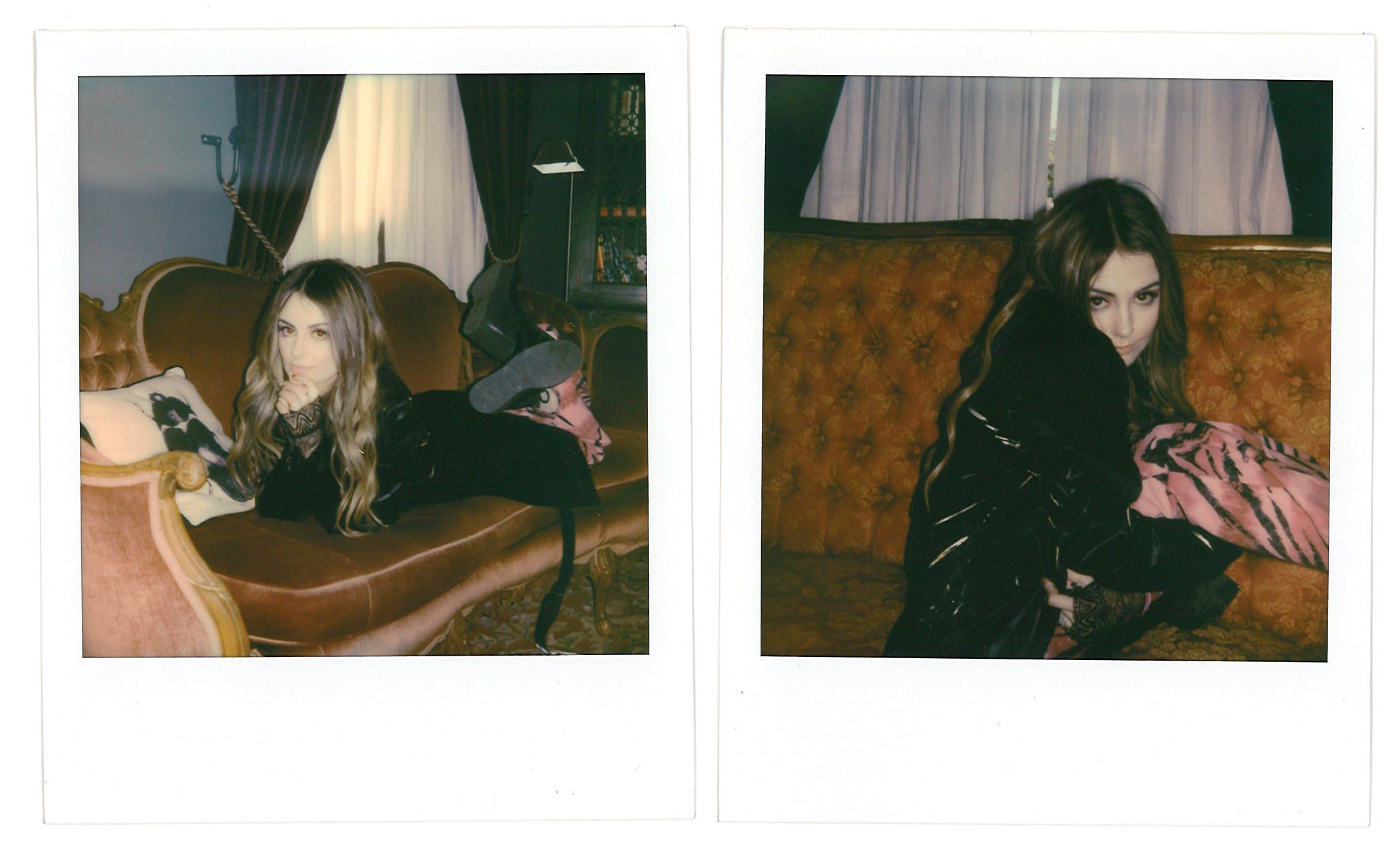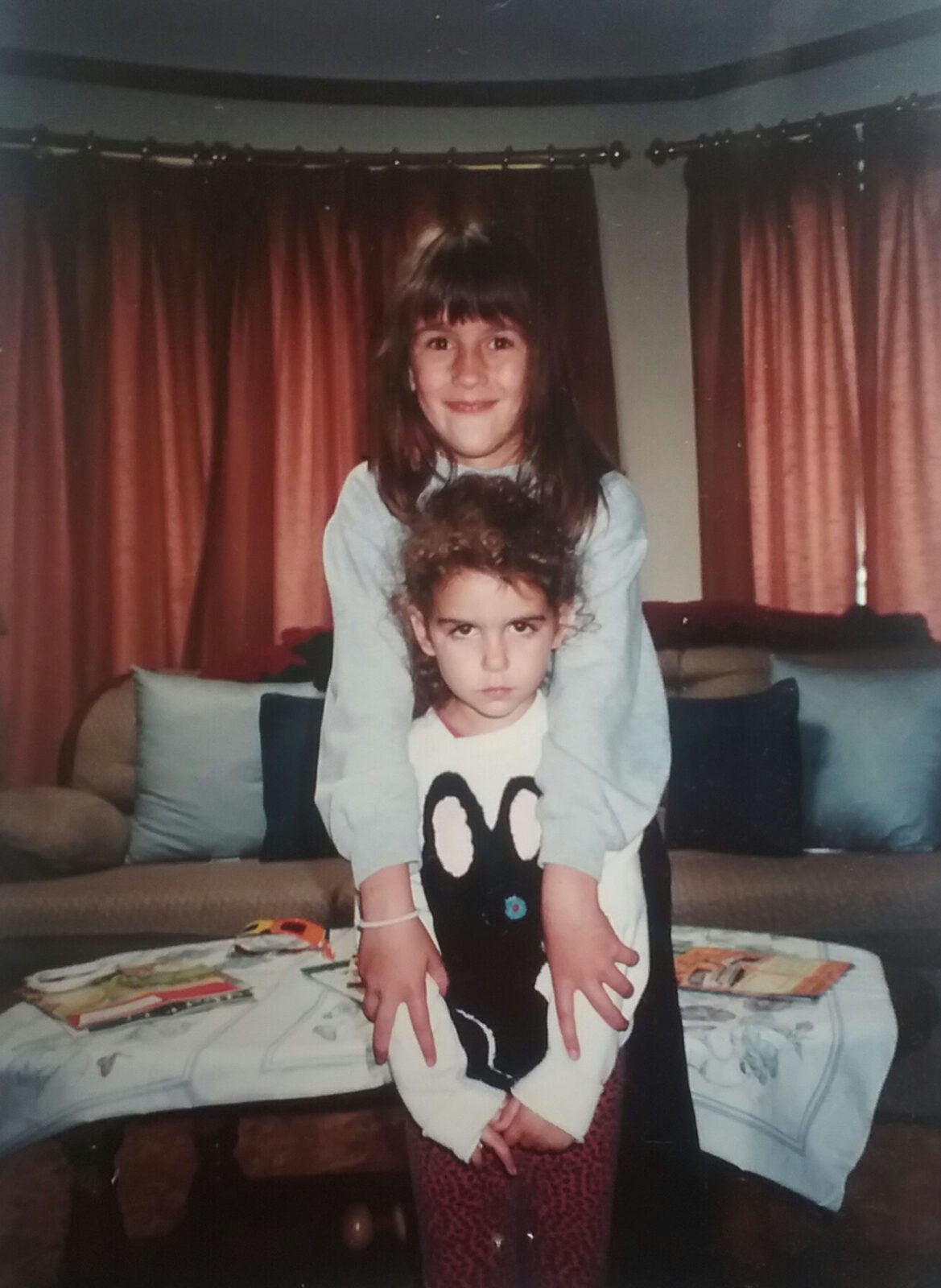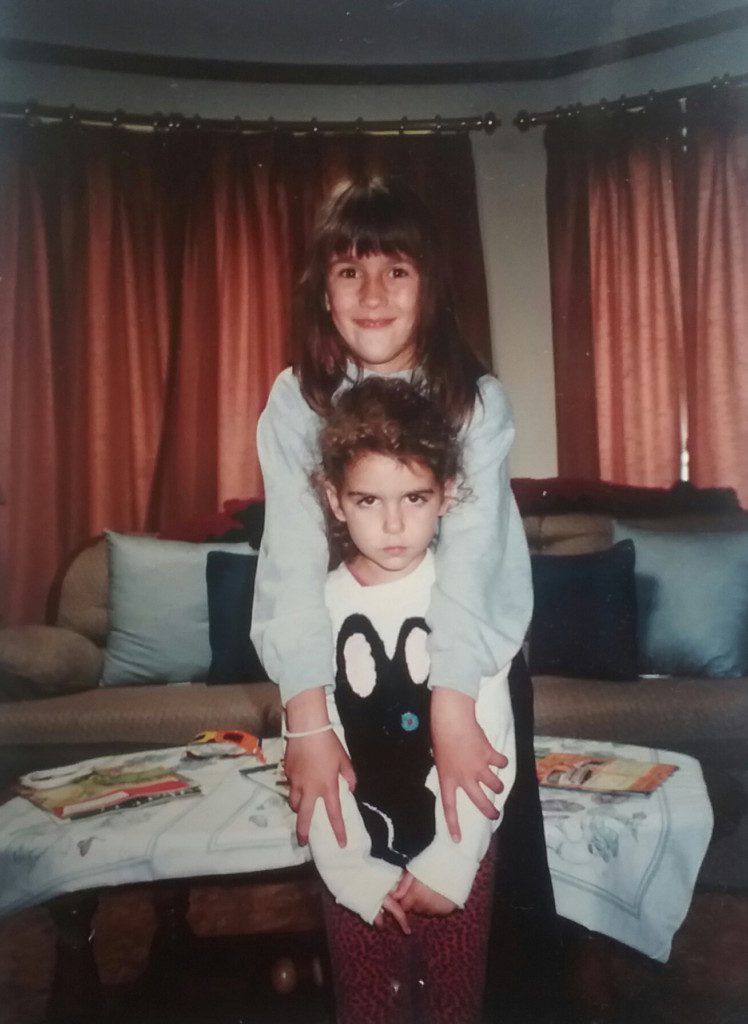Seattle’s Prom Queen Rally to #FreeBritney with Spears Covers EP Lucky
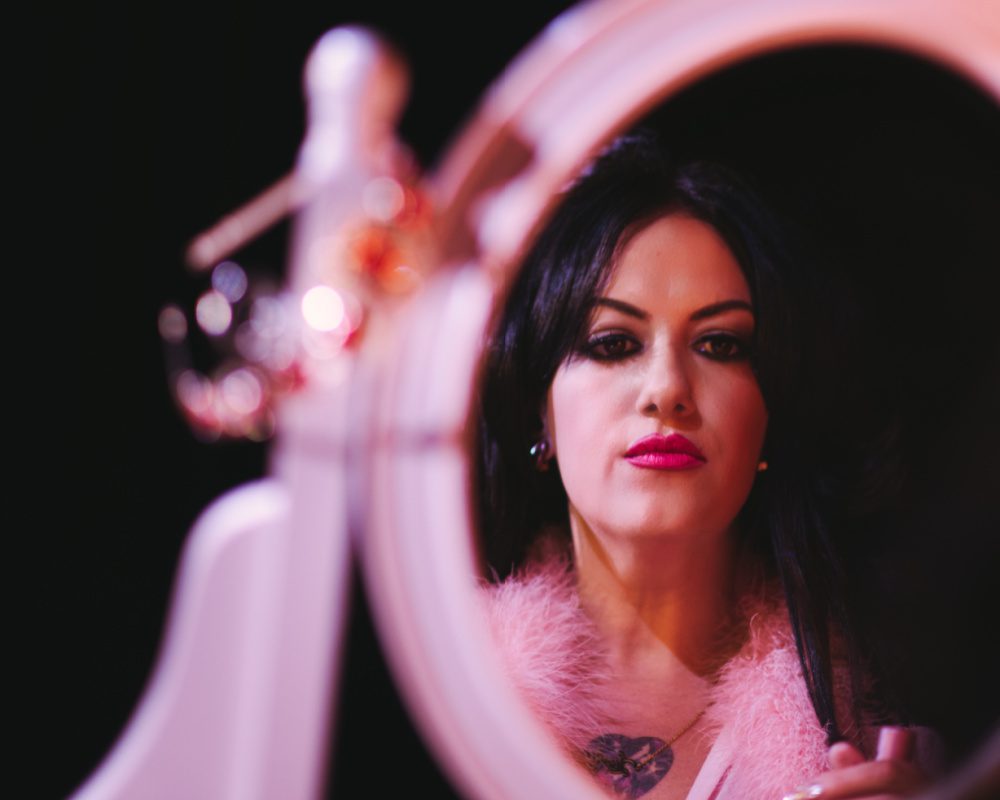

Lately, pop star Britney Spears has been back in the news as she fights to end her court-ordered conservatorship, prompted by a fame-induced mental breakdown in 2008. Thirteen years later, Spears is fighting to regain her autonomy from her conservator father, who limits her access to her estate and allegedly restricts her reproductive rights.
The battle for Spears’ freedom has sparked widespread discussions about disability rights and the public voyeurism that contributed to Spears’ tragic predicament. As society’s scrutiny of Spears’ personal life escalates once again, Seattle and L.A.-based artist Celene “Leeni” Ramadan, also known as Prom Queen, has decided to put emphasis on a part of Britney that she feels is often overlooked—Spears’ talent and significance as a musical artist.
With that in mind, Prom Queen will release a new EP on July 30th entitled Lucky. The 5-song EP is comprised purely of Britney Spears covers, interpreted in Prom Queen’s quintessential macabre-pop language, with a portion of the proceeds from the album going to the National Association to Stop Guardian Abuse.
“With this record, I want people to hear these songs in a different way, to celebrate Britney as an artist,” says Leeni. “If there’s a famous person who’s a man, and who is a brilliant artist but has mental illness, he is celebrated and he is given freedom and he is not being locked down by his mom. We make movies about men like this. These are celebrated stories for a man but for a woman to have any sort of challenges mentally is a problem and we need to lock her away and take away her rights and [say] oh my god, she can’t be a mother.”
Leeni, who is only one year apart in age from Britney Spears, has always enjoyed the pop star’s music and felt close to Spears, who she calls a “generational icon for people my age.” In fact, Leeni’s passion for Britney Spears actually helped her find employment after she first moved to Seattle in 2004.
“In 2005, I started really looking around for work and I was doing improv comedy and one of my improv friends was doing these singing telegrams through this agency called Livewire, and she got me connected with them. I became a performer for them and have worked with them for over a decade doing singing telegrams as different characters [including Britney Spears,]” she recalls. “I remember my first Britney gig – I was hired to walk around at the convention center downtown and all I had to do was wear this schoolgirl outfit and be Britney for a day and it was really fun. And then I remember also performing for some kid’s birthday party. It was so cute. There was a bunch of girls, and they just wanted me to show up and do a full Britney singalong with them.”
It was during her time working as a Britney Spears impersonator that Leeni said she learned Spears’ catalogue inside and out, and even then, knew someday she’d do a Britney Spears cover album. After all, Prom Queen loves to cover songs, something that garnered the band national attention in 2016, when Prom Queen’s mash-up of the Twin Peaks and Stranger Things themes, Stranger Peaks, went viral.
“I consider myself a melody junkie; there’s just melodies that I love and when you get to hear them in a different context – I don’t know, for me, it gives me goosebumps,” she says. “I want to hear a great interpretation of a melody that I love… Like when I did my cover of ‘November Rain,’ I was like, ‘That is a doo-wop song.’ I was so obsessed with making that song over the years. I think I started my first one in like 2009 and kept making that song until I felt like I got it right. I don’t know, I just always really love making covers.”
As for Lucky, Prom Queen has had the concept in her mind “for years,” and had been collecting and studying Britney Spears’ songs on a Spotify playlist, hoping to narrow down her extensive catalogue and choose the ones that would work best in Prom Queen’s style—which includes a slow country ballad version of Spears’ breakout hit “Baby One More Time,” a Dick Dale surf-rock version of “Toxic,” and a glimmering doo-wop adaptation of the EP’s eponymous “Lucky.”
“I’ve always wanted to do an EP of a single artist and Britney has kind of always been at the top of my list,” says Leeni. “I just feel like a great pop song is a great pop song and you can do a number of different things with it and if the bones of the song are good, you can really take it anywhere. I think these songs to me were some of the best. I had such a hard time choosing. I think these songs, it’s kind of my favorite cross-section of her [work.]”
Prom Queen started making demos of her favorite Britney songs in Spring of 2021, and sending them to her bandmate. She would lay down bass, the acoustic guitar and some sketches of the other instruments and then send them to other folks she wanted to include on the record—including locals Jason Goessl of Sundae and Mr. Goessl, guitarist Ben Von Wildenhaus, violinist Andrew Joslyn, and fellow Britney Spears-loving L.A.-based singer, Cassandra Violet.
“Cassandra Violet is a friend of mine and she’s a big Britney fan. She wrote a piece on Medium about Britney and she just released her debut album and she has a song about Britney Spears, and she and I have collaborated a few times so I thought it would be really great to have her sing the harmony on ‘Lucky,’” Leeni says. “And then I got Andrew Joslyn to do the strings, so those are real strings on the EP.”
Each musician recorded their tracks for Lucky in their respective home studios, for COVID safety, and sent them back to Leeni, at which point Tom Meyers, Prom Queen’s drummer, engineered and mixed the EP. Prom Queen has already released their video for “Baby One More Time,” and the band is currently working on a video for “Toxic.”
As for what she hopes this EP can achieve, Leeni hopes it reminds her fans that Prom Queen is still making music, and that it gives fans some fun nostalgic pop music to enjoy over the summer. She also hopes the EP’s celebration of Britney’s music can underscore the importance of Spears’ struggle, advocating that the pop star should get to choose what the rest of her life looks like—even if it means never returning to the stage.
“I hope that she can get her freedom. I hope they can end the conservatorship. I hope that she can even get a restraining order against her father or whatever she needs, but you know, I don’t think that she needs to be in the public eye ever again if she doesn’t want to,” says Leeni. “Whatever she wants to do with the rest of her life, I want it to be her choice.”
Follow Prom Queen on Facebook for ongoing updates.

